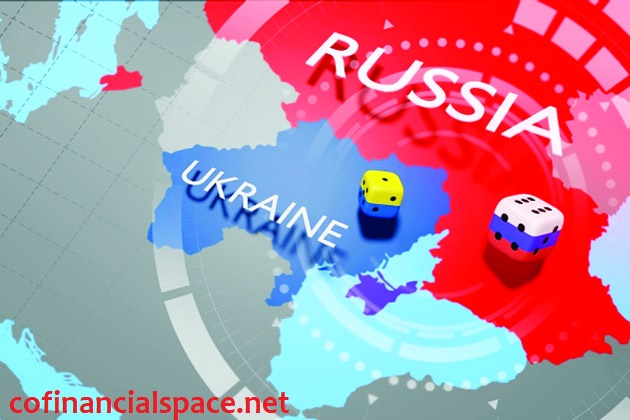
24 mars 2023
The ongoing war between Russia and Ukraine has created significant economic and social impacts not just for Ukraine and Russia but also for the rest of the world. The United States and Europe, in particular, have felt the effects of the conflict, with economic sanctions and political tensions affecting trade, investments, and other economic activities. This article will discuss the social and economic impacts of the Russia-Ukraine conflict on the United States and Europe.
Economic Impacts:
The economic impact of the Russia-Ukraine conflict on the United States and Europe has been significant. Economic sanctions have been imposed by both the United States and Europe on Russia in response to its annexation of Crimea and support for separatists in eastern Ukraine. These sanctions have targeted key sectors of the Russian economy, including finance, energy, and defense, with the aim of pressuring Russia to change its policies.
The sanctions have had a significant impact on Russia's economy, which has contracted significantly since the start of the conflict. In 2020, Russia's economy was expected to contract by 3.5 percent, while its inflation rate was projected to reach 3.8 percent. The sanctions have also led to a decline in foreign investment in Russia, with many businesses and investors wary of investing in a country facing sanctions.
The economic impact of the conflict on Ukraine has been even more severe. The war has disrupted economic activity in eastern Ukraine, which is home to many of the country's key industries, including steel and coal. The conflict has also disrupted trade with Russia, which has historically been Ukraine's largest trading partner. The decline in trade with Russia has led to a significant decline in Ukraine's GDP, which contracted by 4 percent in 2020.
The conflict has also affected the economies of the European Union, which is Russia's largest trading partner. The economic sanctions imposed by the EU have led to a decline in trade with Russia, which has affected the EU's manufacturing and agricultural sectors. The EU's economy has also been affected by the decline in trade with Ukraine, which is a significant trading partner for many EU countries.
Social Impacts:
The social impacts of the Russia-Ukraine conflict on the United States and Europe have been less severe than the economic impacts but have nonetheless been significant. The conflict has led to political tensions between Russia and the West, with both sides engaging in a war of words and accusations. The conflict has also led to an increase in propaganda and disinformation, with both sides using social media and other channels to spread their message.
The conflict has also led to an increase in refugees and internally displaced persons (IDPs). According to the United Nations High Commissioner for Refugees (UNHCR), as of March 2021, there were over 1.4 million registered IDPs in Ukraine, while over 800,000 Ukrainians had fled to neighboring countries, including Russia, Belarus, and Poland. The conflict has also led to an increase in the number of refugees and asylum seekers in Europe, with many fleeing the conflict in search of safety and security.
China role :
China has played a somewhat neutral role in the Russia-Ukraine conflict, with its main objective being to maintain good relations with both countries. China has historically maintained a non-interventionist stance when it comes to conflicts between other countries, preferring to focus on its own economic and political interests.
China has generally maintained a neutral stance on the conflict, calling for both sides to resolve their differences peacefully through dialogue and negotiation. China has also supported diplomatic efforts aimed at resolving the conflict, including the Minsk agreements, which were signed in 2015 and aimed at bringing an end to the fighting in eastern Ukraine.
While China has not provided direct military support to Russia in the conflict, it has provided economic and diplomatic support that could be seen as indirectly aiding Russia. For example, China has continued to buy energy and other resources from Russia despite the economic sanctions imposed by the United States and Europe. China has also continued to invest in Russia's economy, including in infrastructure projects like the Russia-China gas pipeline.
In addition to economic support, China has also provided diplomatic support to Russia. China has opposed the imposition of economic sanctions on Russia by the United States and Europe, arguing that such measures only serve to escalate tensions and harm the global economy. China has also been critical of Western involvement in the conflict, arguing that it is a regional issue that should be resolved by the parties directly involved.
Overall, China's role in the Russia-Ukraine conflict has been one of cautious neutrality, with the country seeking to maintain good relations with both sides while advocating for a peaceful resolution to the conflict. While China has provided indirect support to Russia through economic and diplomatic means, it has not taken a direct role in the conflict and has instead focused on maintaining its own strategic interests in the region.
Conclusion:
The ongoing conflict between Russia and Ukraine has created significant social and economic impacts not just for Ukraine and Russia but also for the United States and Europe. The economic sanctions imposed by the United States and Europe on Russia have had a significant impact on Russia's economy, while the conflict has disrupted economic activity in eastern Ukraine. The conflict has also led to an increase in refugees and IDPs, with many fleeing the conflict in search of safety and security. While the conflict shows no signs of abating, it is important for the international community to continue to work towards a peaceful resolution that can bring an end to the suffering of the people affected by the conflict.